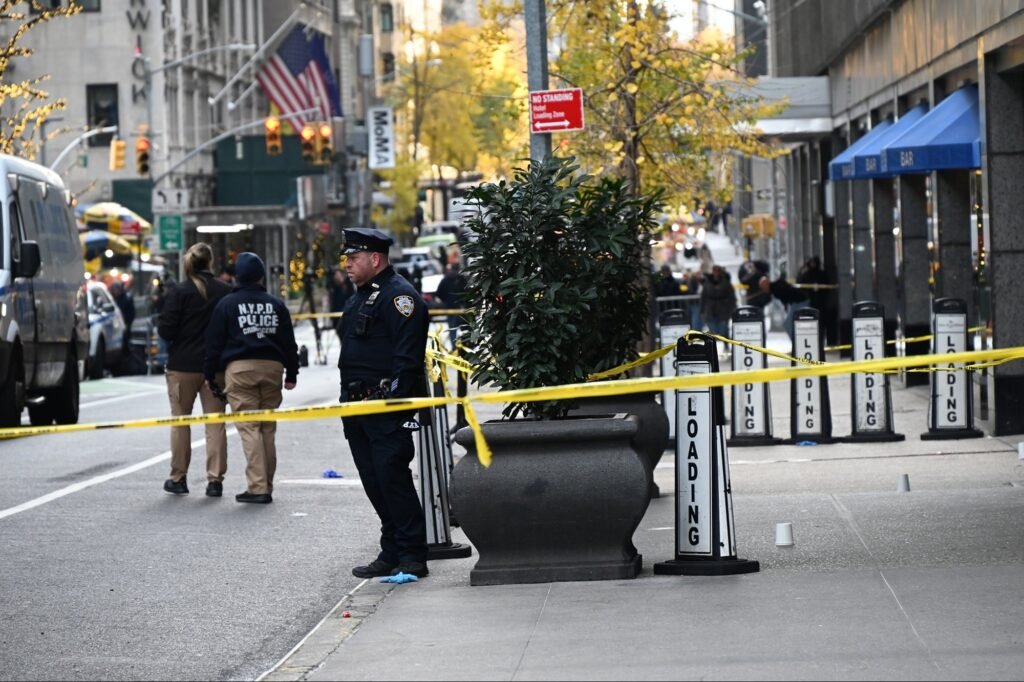Opinions expressed by Entrepreneur contributors are their own.
This week’s tragic shooting of UnitedHealthcare CEO Brian Thompson in New York has raised concern about the security of corporate leaders.
CNN says, “UnitedHealthcare CEO’s killing shows why companies spend millions to protect their top executives.” A Forbes columnist predicts that “after the shooting… security personnel will be in demand.” And, according to this Wall Street Journal report, his killing “prompted an immediate re-evaluation of longstanding security practices across corporate America,” and “dozens” of security chiefs from large U.S. companies convened together on a call to discuss the situation.
“The environment is explosive right now,” a former Boston police commissioner who now (no surprise) consults with large companies on mitigating security risks told the Journal. “The threats are evolving and getting more violent.”
Okay, let’s calm down, shall we?
Of course, there’s reason behind this concern. Corporate executives are not only more in the spotlight than ever before, but they are also not too hard to find. They attend public events, shareholder meetings and social functions all over the world. Often, companies make their schedules public or publish press releases noting where they’ll be. Getting hold of their home addresses is a few steps online. Digging into their personal relationships takes minutes, thanks to LinkedIn, X and Facebook.
If you’re a corporate executive, you can easily be targeted by someone who, say, wants to right a wrong or impersonate a social justice warrior for 15 minutes of fame. But this is not a new thing, is it?
Uber’s former CEO, Travis Kalanick, was egged in Taiwan in 2017. Bill Gates was hit with a pie in the face during an overseas visit in 1998. Rubert Murdoch and the CEOs of Qantas Airlines and the now defunct Enron Corporation also got pie-ed. Frankly, lots of business leaders and celebrities have been “involuntarily” pied over the years.
But the murder of a CEO is, obviously, much more serious. Thankfully, these situations have not only been few and far between but almost non-existent.
An advertising executive was murdered in New Jersey in 1994, but that turned out to be the Unabomber’s doing. A Microsoft executive was shot and killed in Florida in 2022, but the culprit turned out to be his ex-wife’s husband. George Tiller, who owned a women’s health clinic in Kansas, was murdered by an anti-abortion extremist at a church service (his clinic was the target of “multiple attacks” previously).
I don’t want to downplay or trivialize the gravity of what happened to Thompson. But I’ve searched Google and various chatbots like Perplexity and ChatGPT for examples of other CEOs who have met the same fate and come up short.
There are currently 55,000 publicly held companies in the world, and the U.S. has more than six million employee-owned businesses alone. These companies are led not only by CEOs and business owners but by teams of senior executives who would all make enticing targets for the attention seeker. And yet, there are very, very few incidents like this. Senior executives seem more at risk of succumbing to a skiing accident or going down in a plane crash than some random person shooting them point blank on a busy New York City street.
Which is why we should all calm down for a minute. The media loves to exploit the worst of our fears and anxieties to get clicks. So they write things like “security will be in demand” and “the environment is explosive.” Posts like these from irresponsible “journalists” certainly do not help either. It’s a great marketing moment for security firms. But should corporations be making knee-jerk decisions to all-of-the-sudden start spending significant sums for security over what seems to be an isolated incident? If your CEO is Mark Zuckerberg, a celebrity, I get it. But for all others? I’m not so sure.
Related: Here’s How Entrepreneurs Can Protect Their Company From Cyberattacks
Why? Because people don’t go around shooting other people. Our systems — while they don’t catch everyone — are pretty good at isolating those with criminal histories or who need watching. Guns can be obtained both legally and illegally, but pulling off a shooting requires patience, skill and planning.
Of course, people in public positions need to be careful in today’s world. CEOs who get political or involved in social issues or support certain controversial causes are increasing their risk of assault from a tiny fraction of lunatics that oppose them. Executives who run firms that are involved in life and death matters, such as healthcare, also need to be careful. All leaders have to be aware of their surroundings. If they receive threats — as Thompson allegedly did — they must take them seriously. Those are the situations where added security measures are needed, be it provided by local police or through private firms.
But as you can see from the numbers, these situations are few and far between. So, no one should be panicking. Corporations don’t need to surround their CEOs with secret service-type agents in sunglasses. Some do, and they pay millions for the privilege. But for the vast majority of corporate executives, they can take heart that we haven’t gotten to that point. And I don’t think we will ever get to that point — at least not in the foreseeable future.
Thompson’s shooting was tragic. But it was a rare event. An anomaly. We should mourn for this man. But, with apologies to the security industry, we shouldn’t be overreacting.




